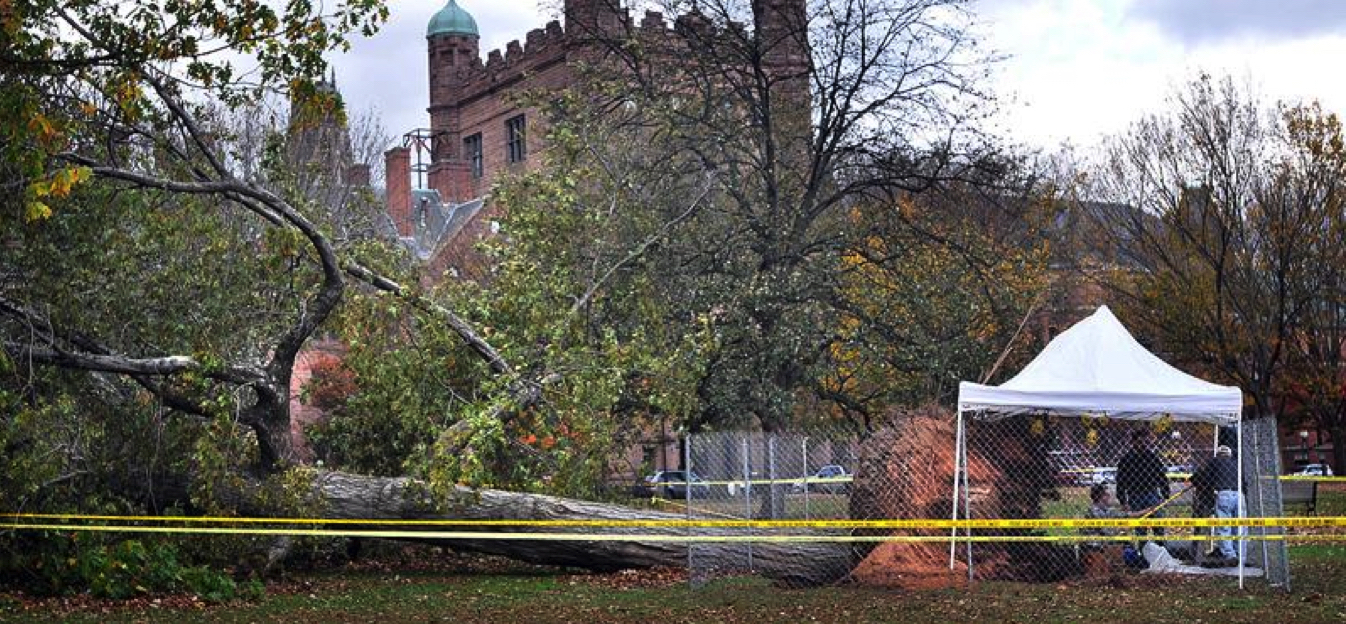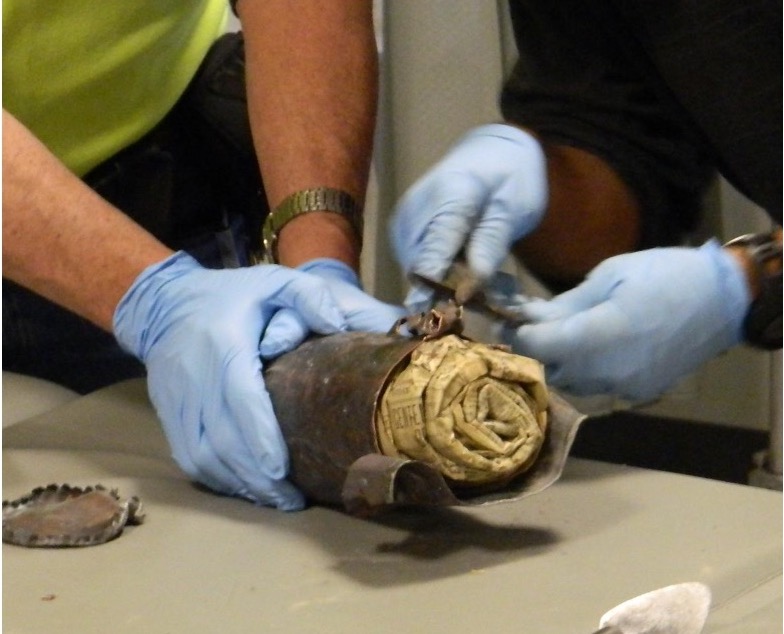Uproot verb
up·root | \ (ˌ)əp-ˈrüt, -ˈru̇t \
uprooted; uprooting; uproots
transitive verb
1 : to remove as if by pulling up
2 : to pull up by the roots
3 : to displace from a country or traditional habitat
(Merriam-Webster)
“Uprooted” is a Digital Humanities project regarding the time capsule buried in New Haven in 1909 and unearthed by the superstorm Sandy in 2012. We named the project “Uprooted” not only because the time capsule appeared when the Lincoln Memorial Oak fell in New Haven’s Green and its roots pushed up the structure that was holding the capsule, but also because the capsule exposes our own roots. Bringing them to the light in a digital environment is another way to preserve for future generations the combination of news, lives and expectations that a group of people decided to preserve from time and dust.

While most of the objects found in the time capsule are related to Abraham Lincoln’s centennial and its local celebration, the capsule also includes nine newspapers published in New Haven the day of the burial. There, we can read about the matters that were important to the people that lived in this city at the beginning of the 20th century, and see how news circulated before the internet and the expansion of national newspapers.

This project was possible thanks to the generous help of the staff of the New Haven Museum, especially Edward Surato. This institution will preserve the time capsule and some of its history for future generations, alongside the other treasures preserved at the Whitney Library. We also are grateful to Professor Nicholas Bellantoni, who was the main archeologist involved in the excavation that led to the discovery of the time capsule, and who has given us valuable accounts, pictures, and details of a process that involved the Bomb Squad of New Haven Police Department.
This project was created by the students of Yale’s Introduction to Digital Humanities class in the fall semester of 2022, and made possible through the guidance and inspiration of our professor Alex Gil.